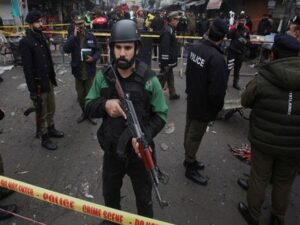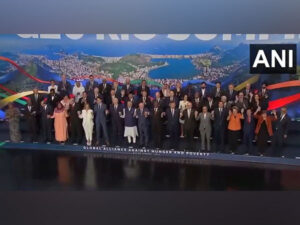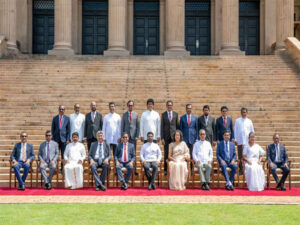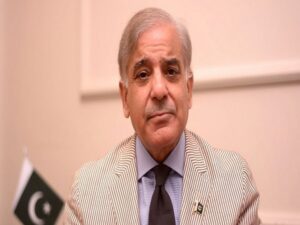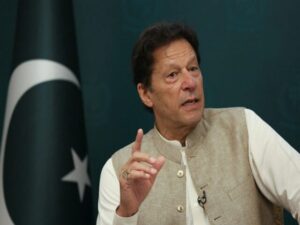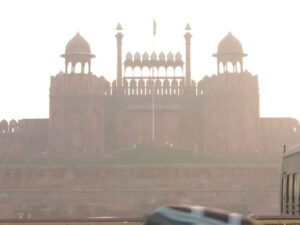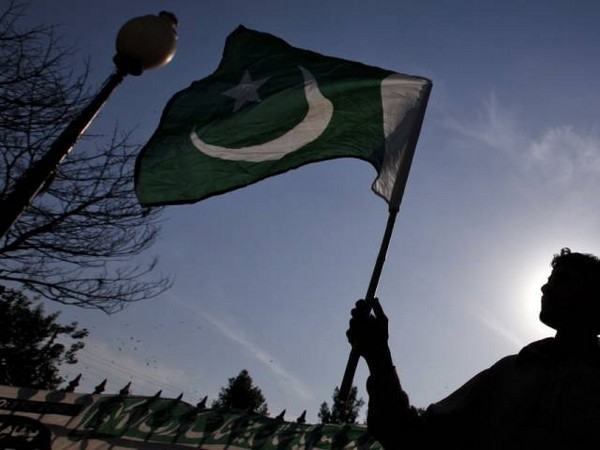
Islamabad [Pakistan], April 10 (ANI): The Pakistan government has booked all major Pakistan Tehreek-e-Insaf (PTI) leaders including its chairman Imran Khan, as well as some civil society activists for sedition, Pakistan-based Business Recorder newspaper reported. According to Business Recorder, pronouncing criticism of a government or its subordinate organisations as sedition, the crime of betraying one’s state, is inconceivable in any functioning democracy.
In Pakistan, however, a colonial-era law introduced in 1860 to criminalise dissent to control the ‘subjects’ stayed on the statute book post-independence until this past March 30, when hearing a public interest petition Justice Shahid Karim of the Lahore High Court (LHC) issued a short order, striking down Section 124-A of the Pakistan Penal Code (PPC) that said “whosoever by words, either spoken or by signs, or otherwise, attempts to bring into hatred or contempt the federal or provincial government” would be punishable with imprisonment for life or up to three years along with fine, Business Recorder reported.
The judge in his 48-page judgment had to explain why loyalty to the State has to be distinguished from loyalty to the government. Taking exception to three keywords, contempt, hatred and disaffection, used in section 124-A, he wrote: “As human beings, we are all susceptible to showing such emotions at some point or the other.”
The judge observed that the impugned section of the PPC demands allegiance and loyalty by all opposition parties, their members, the citizens and members of the press towards the federal or provincial governments of the day.
This means any political opponent (of the government) or a citizen having loyalty to a different group will, by necessary implication, be disloyal to the federal or provincial government in power, which “is antithetical to the very concept of democracy and constitutionalism”. Democratically- elected governments yet intentionally or unintentionally continue to retain this draconian provision. Justice Karim also pointed out that section 124-A in its present form went against Article 19 of the Constitution related to press freedom that, he asserted, must not be abridged on the misplaced notion that the government of the day can suppress freedom of expression at will, Business Recorder reported.
Some underhand measures are employed to prevent the media from questioning the policies of the government as well as certain other quarters. The disputed section so openly seeks to suppress dissent that any challenge to the LHC’s verdict can end up in embarrassment. Another colonial relic, the Maintenance of Public Order Ordinance, liberally used to arrest political activists for participating in protest demonstrations, also needs to be laid off. (ANI)
Pakistan court summons Imran Khan in Toshakhana case tomorrow
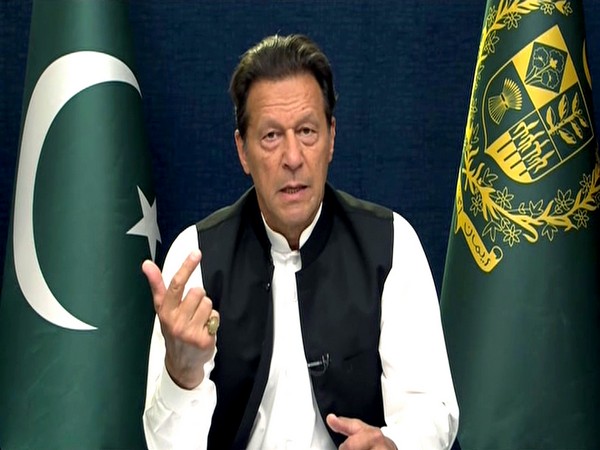
Islamaba d [Pakistan], April 10 (ANI): An Islamabad court has summoned former Pakistan Prime Minister Imran Khan in the Toshakhana case on April 11, The News International reported. The Additional District and Sessions Judge (ADSJ), Islamabad court has issued the summon on a plea seeking an immediate hearing of the Toshakhana case. Pakistan Tehreek-e-Insaf (PTI) chairman Imran Khan has been asked to appear before the court in person on April 11 at 8:30 am (local time), according to the summons.
The summons noted that the law will take its own course in case of non-appearance, as per The News International report. In October last year, the Election Commission of Pakistan (ECP) disqualified Imran Khan and unseated him from National Assembly in the Toshakhana case.
According to the written judgement, the ECP said that Imran Khan had purchased the gifts from Toshakhana by paying Pakistani Rupees (PKR) 21.564 million. The Election Commission of Pakistan said that the Cabinet Division has revealed that the gifts bought by Imran Khan were worth PKR 107.943 million.
The ECP decision reads, “The amount in his bank account was around half of the value of the state gifts. Imran Khan was bound to declare the cash and bank details in his returns but he didn’t declare it,” according to The News International report.
Last week, the district and sessions court in Islamabad adjourned the hearing of the Toshakhana case against Pakistan Tehreek-e-Insaf (PTI) chief Imran Khan till April 11, ARY News reported.
As Additional Sessions Judge Zafar Iqbal started hearing, a junior lawyer representing the former premier informed the court that neither Imran Khan nor any of our senior lawyers had received summon notice in the case, according to ARY News.
Afterwards, the court asked the police for a report regarding the implementation of the summons and the hearing was adjourned for a short period. As per the ARY News report, the hearings were postponed by the court until April 11 after the submission of the report.
Earlier in March, a district and sessions court in Islamabad accepted Imran Khan‘s request for exemption from attending the hearing scheduled for March 30 in the Toshakhana case. Imran Khan‘s lawyers had filed a request for exemption from the hearing.
Under the rules governing “Toshakhana” -a Persian word meaning “treasure house” – government officials can keep gifts if they have a low worth, while they must pay a reduced fee to the government for extravagant items, The News International reported.
The Toshakhana is under a microscope ever since the emergence of the allegations that the PTI chairman bought the gifts he received as the country’s prime minister at throwaway rates and sold them off in the open market for profits. (ANI)






